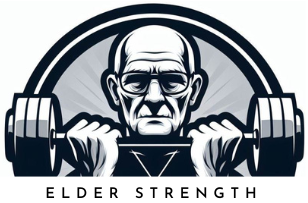Welcome friend! In this post, you will learn about the best omega 3 for seniors. What is the best supplement and do you even need it?
You’ve probably heard about the benefits of omega 3 supplements before from friends, colleagues, health magazines, or even your doctor.
Omega 3 fatty acids are very important for your health but there has actually been some debate if omega 3 supplements are effective and if you should just make sure you get enough in your diet.
Despite the debate, omega 3 supplements are one of the most common dietary supplements and the options for products are virtually endless.
You can find these supplements in abundance especially online but even grocery stores these days have a selection that can make your head spin.
Honestly, there are so many kinds of omega 3 supplements on the market that it can be really hard to choose one.
More important is the question do you actually need omega 3 supplements and if the health claims are real.
I’ll talk about all this and more in this article so read on if you want to learn more about omega 3’s for seniors.
Let’s begin by looking at what exactly are these omega 3’s.
What Are Omega 3’s
You probably have at least a vague idea that omega 3’s are fats of some sort.
They are actually polyunsaturated fatty acids with a certain kind of molecular structure.
There are many types of fatty acids in dietary fat and in your body but they can be generally divided into three main groups: Saturated fatty acids, monounsaturated fatty acids, and polyunsaturated fatty acids.
All of these fatty acids have different functions. Some function as energy storage, others as building blocks for cells, hormones, and other tissues of your body.
All of these fats also have subcategories based on their molecular structure. So as I said, omega 3’s are a type of polyunsaturated fat. There are also other types of polyunsaturated fats like omega 6 and omega 9.
To make things even more complicated, there are several types of omega 3 fatty acids. The three most important ones are alpha-linolenic acid (ALA), eicosapentaenoic acid (EPA), and docosahexaenoic acid (DHA)
The name Omega 3 means that there’s a carbon-carbon double bond located three carbons from the methyl end of the carbon chain in case you are interested in chemistry. Don’t worry if you’re not, it’s not important for understanding the function.
Omega 3’s in different forms can be found in many dietary sources. Most abundantly in fish and seafood and that’s why many people know them from cod liver oil or fish oil.
Omega 3’s are very important for cell function as they are used in the structures of the cell membranes. Omega 3’s are also used to create hormone-like signaling molecules called eicosanoids.
What makes omega 3’s different from other fatty acids is that your body can’t manufacture them, which means they have to be acquired from the diet. That’s why they are also called essential fatty acids.
Benefits Of Omega 3 Supplements
So what are the benefits of omega 3 supplements? As we established in the previous chapter, they are needed for normal cell function and for many bodily processes.
Naturally, lacking these fatty acids from the diet would cause those bodily processes to malfunction, leading to disease or even death.
But do you really need to supplement them? Well, there is recent evidence that most people might not actually benefit from omega 3 supplements.
You see, the amount of omega 3 you need to get from your diet is actually very small. Most sources of fat have enough omega 3’s to ensure health.
When you think about it, if our bodies relied so badly on these fatty acids that they needed to be supplemented in large amounts, humans would probably have not been able to inhabit most of the planet. We would likely rely on fish and seafood a lot more.
There has been a lot of debate about optimal levels of omega 3 as there is evidence suggesting that omega 3’s helps reduce inflammation and the more abundant omega 6 might actually increase it.
Processed foods, especially fried ones are abundant in omega 6 fatty acids, so many people eating a Standard American Diet get plenty of omega 6 but not much omega 3 in their diet.
Omega 3’s have also been associated with heart health, brain health, and improving mood disorders like depression and anxiety.
Unfortunately, the science isn’t that clear on the beneficial effects of omega 3’s for healthy people with good diets.
The good news is that Omega 3 supplements are well tolerated and can be affordable, so there is likely no harm in trying them.
It’s still important to run them by your doctor because there is some evidence they can reduce blood clotting and affect some drugs.
Types Of Omega 3 Supplements
Omega 3 supplements are probably one of the most common health and dietary supplements for the past decades so it’s no surprise that the options are endless.
But when you look past the marketing there are essentially only a few types of Omega 3 supplements.
There are oils made out of fish or crustaceans like krill, there are oils made out of seaweed, and there are oils made out of vegetable sources like flax or camelina.
All of these have different kinds of compositions and they can have additives. Virtually all can be found as oil in a bottle or as gelatinous capsules.
The biggest difference is between the animal-sourced and vegetable-sourced omega 3’s supplements.
Animal sources are typically high in EPA and DHA while vegetable sources are typically high in ALA and DHA.
EPA is the omega 3 that is most researched for heart health and cognitive benefits so it’s likely that an animal-based oil is most effective as a supplement.
ALA from vegetable sources can be converted into EPA and DHA but only in very small quantities.
Best Omega 3 For Seniors
After talking extensively about omega 3 supplements, you are probably expecting me to recommend you one. But I’m not going to.
This is because the current evidence suggests that actual fish is more beneficial for the many claimed benefits of omega 3 supplements.
You can get the beneficial Omega 3 oils from fatty fish like tuna, salmon, sardines, anchovies, and mackerel.
Just a couple of meals of fish per week is enough to get the minimum amount of omega 3’s from your diet.
I recommend you choose sustainably and responsibly caught fish as overfishing is a real issue. Many common species of fish you probably used to eat in your youth have already gone extinct. The same goes with fish oils of course.
You can also get omega 3 fatty acids with EPA from some eggs and even beef if it’s grass-fed with the correct type of grass.
Most vegetable oils also contain omega 3’s in the form of ALA. It can be found in high amounts in soybean, canola, and flaxseed oils.
While ALA is not as researched for its health effects, it can be converted in the body to EPA and DHA. Unfortunately, the conversion process is inefficient, so if you get only a little ALA, it might not be enough.
The other problem with vegetable oils is that they are generally high in omega 6’s and there is some evidence this could induce inflammation.
On the other hand, vegetarian and vegan diets are associated with heart health benefits, so this is likely not a significant issue, especially if you avoid fried foods and use high-quality cold-pressed oils.
Conclusion
I hope you found this article about the best omega 3 for seniors useful. If you have any questions, feel free to leave them in the comments section below and I’ll do my best to help you out.
As a recap, Omega 3’s are an essential type of fatty acid you need to get from your diet.
Omega 3 supplements have been marketed heavily for many ailments but the current understanding is that supplementing them is only beneficial with certain medical conditions or if your diet is very scarce.
It’s likely more beneficial to get your omega 3’s from your diet so it is important to eat a diverse and healthy diet that includes a lot of fish, nuts, and cold-pressed vegetable oils. If want to learn more about such a diet, you can check out the article Mediterranean Diet For Seniors.
If you’d like to try an omega 3 supplement, almost any kind will do. I recommend you buy one from a reputable brand and store it in the fridge to make sure it doesn’t turn rancid. Major store brands are usually ok, no need to hunt for something special.
If you choose fish or krill oil, please make sure it’s from a sustainably caught source.
Omega 3’s are not a magic bullet that will cure diseases, they are just a nutrient you need to get from your diet. If you are interested in nutrition and supplements for seniors, also check out the article Best Protein Supplements For Seniors, Best Electrolyte Drinks For Seniors and Best Fiber Supplement For Seniors.
It’s also important to remember that diet is just a small part of health and wellbeing, exercise, sleep, stress reduction, social activity and doing things you enjoy are also very important. For ideas on these, check out the recent articles Leg Strengthening Exercises For Seniors, How Many Steps Per Day For Seniors?, Best Sleep Aids For Seniors and CBD Oil And Seniors.
Thanks for reading and see you next time!

